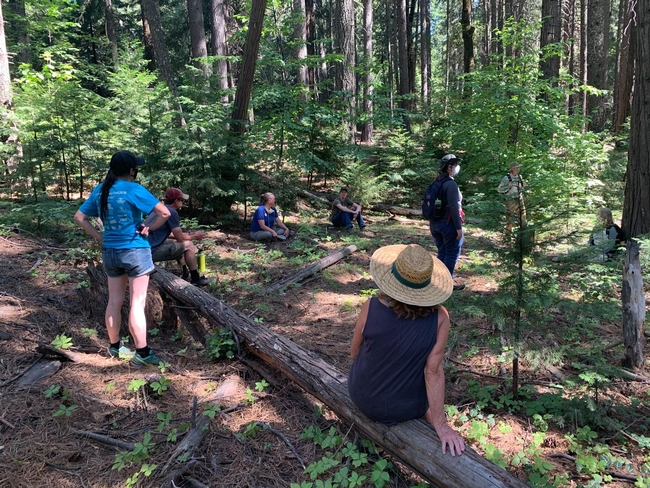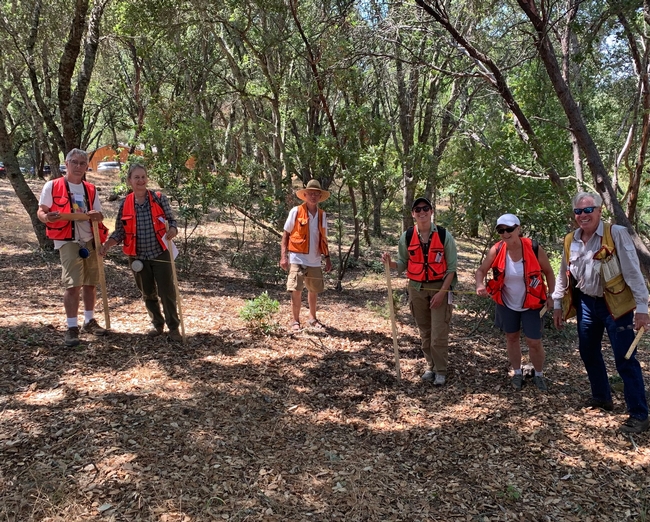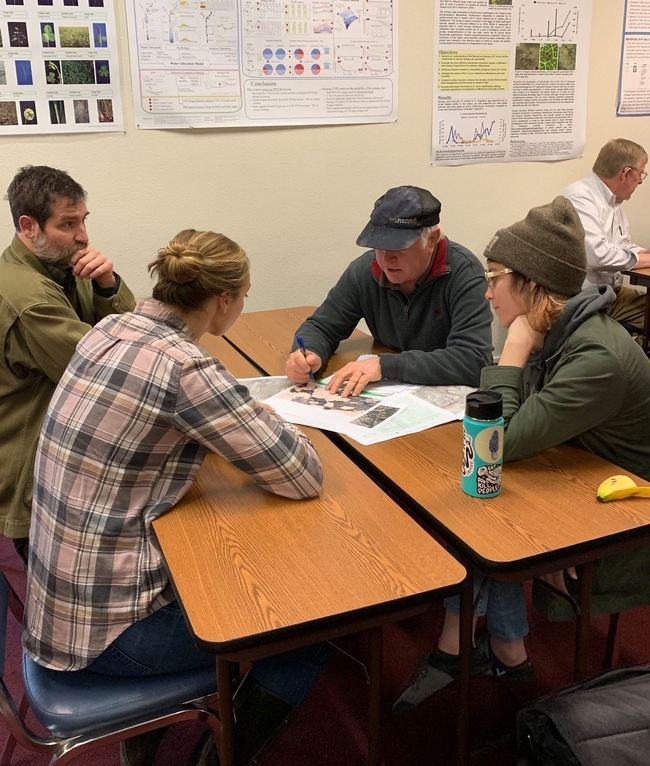While trees and forests are often emblematic of constancy in a fast-paced world, our state's forests are actually changing before our eyes. Since 2020, the UC ANR Forest Stewardship Education (FSE) program has been helping California's forest landowners be proactive about the inevitable shifts their forestland will experience. The Forest Stewardship and Post-Fire Forest Resilience workshop programs use an online educational format, which guide landowners through the basics of creating forest management plans and managing post-fire landscapes, respectively. Now, the FSE team is piloting a new program to engage a wider audience of forest landowners and community members passionate about trees.
This spring, the Forest Stewardship and UC ANR Fire Network teams are holding the first California Tree School, where individuals attend multiple in-person classes on the forestry topics they are most curious about. “The existing online programs are very focused on forest management plans and post-fire activity, and [Tree School] lets us tackle other topics,” said UC ANR forest and natural resources advisor Susie Kocher.
A one-stop shop for continuing forestry education
California Tree School was inspired when Forest Stewardship Academic Coordinator Kim Ingram, Post-fire Academic Coordinator Katie Reidy and Kocher attended Oregon State University Extension's Tree School event in Clackamas County, Oregon. OSU Tree School is a day-long experience comprised of classes that cover the different dimensions of forestry: constructing a house from your own timber, carbon cap and trade, and buying portable sawmills are just a small sampling of the options for attendees. OSU Tree School students ranged from forest landowners to community college students, contributing to a space which would facilitate community connections as well as learning.
Kocher described the experience as a “a great one-day, one-stop shop to keep up-to-date on what we [forest landowners and professionals] should know.” Excited by the breadth of opportunities offered at OSU's Tree School, Ingram, Kocher and Reidy were inspired to bring the format to California.
“It's our time to discuss the whole ecosystem,” noted Reidy. “Tree School is bringing in the trustworthy, reliable group of experts who can provide more information on the questions pertaining to landowners' specific goals.”
California Tree School will be offered in two locations this spring, with CA Tree School- Hopland taking place on May 4, and CA Tree School- El Dorado on June 1. Similar to OSU's Tree School, attendees are expected to be a mix of forest landowners, natural resource professionals and interested community members.
Connecting statewide professionals; personalizing forestry education
Tree School offers attendees the opportunity to focus on subjects that pertain to their specific learning needs. This personalized approach is a new foray for the Forest Stewardship team, but is something that Ingram says workshop participants have been wanting for some time.
“Our participants never think they learn enough. They are always asking for more information, and this Tree School gives us the chance to expand on things we might not have had a chance to go over in the workshop series,” remarked Ingram. Additionally, Tree School instructors had creative freedom when it came to developing their classes, from the topic to the class format. This is evident when browsing through each session's class catalog. CA Tree School attendees choose four classes to attend, meaning they can build their first burn pile, understand the ins and outs of regional wildlife, paint outdoors and learn how to aid statewide reforestation efforts all in one day.
“I felt that Tree School created a sense of trust around complex topics,” noted Reidy about her experience last year in Oregon. For CA Tree School, the Forest Stewardship team aims to do the same. This meant recruiting from throughout the UC ANR network and other organizations, including CALFIRE and CARCD (California Association of Resource Conservation Districts), to bring trusted voices to the community.
“What's exciting about Tree School is that we are bringing natural resource professionals from all around to engage everyone at the same time, and all in one place,” noted Ingram.
The team is excited to see all the connections that will be made between community members and professionals during this pilot year, and “if this is successful and we can bring it back next year,” commented Kocher, “we are definitely interested in partnering with more people and expanding our outreach.”
Making CA Tree School an in-person experience was important to the team, as much of the education is hands-on. Additionally, Kocher sees enhanced potential for building personal connections: “In person, you have this opportunity for people to identify as part of a community,” noted Kocher, “So I'm excited for people to hang out with each other.”
Encouraging an informed community
“You can't separate the emotional from the physical, and there are a lot of topics in forestry like wildfire and economics that can be a bit of a downer,” said Ingram. “I'm excited to help create a positive learning environment, and one that encourages folks to turn to UC Cooperative Extension for these resources.”
“Our main goal here is to get science out there,” concurred Reidy. “The more exposure people have to science, the more confident they feel in themselves and their wants and needs.”


